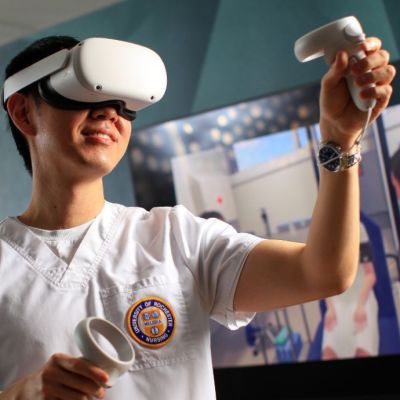High performance computing refers to computing systems with extremely high computational power that are able to solve hugely complex and demanding problems.
In the digital decade, high performance computing (HPC) is at the core of major advances and innovation, and a strategic resource for Europe's future.
In today’s world, more and more data is constantly being generated, from 79 zettabytes globally in 2021 to an expected 181 zettabytes in 2025 (1 zettabyte is equal to 1 trillion gigabytes). As a result, the nature of computing is changing, with an increasing number of data-intensive critical applications.
HPC is key to processing and analysing this growing volume of data, and to making the most of it for the benefit of citizens, businesses, researchers and public administrations.
HPC can be used in a large number of application areas: from monitoring and mitigating the effects of climate change and producing safer and greener vehicles to increasing cybersecurity and advancing the frontiers of knowledge in nearly every scientific field.
It is also starting to play a key role in medicine: HPC can be used in drug design, from testing drug candidate molecules to repositioning existing drugs for new diseases. And, it can help us understand the origins and evolution of epidemics and diseases. Supercomputers are actively involved in the quest for treatments for COVID-19.
Moreover, HPC has proved to be of great importance in developing new applications and products. It has a direct impact on the digital supply chain, such as designing new materials, cars and aeroplanes, and bioengineering and manufacturing.
World-class supercomputers are able to perform more than 10¹⁵ — at least one million billion, operations per second (petascale performance). A few top-of-the-range systems exceed 10¹⁷— at least one hundred million billion, operations per second (pre-exascale performance). The next generation (exascale) will perform more than one billion billion (10¹⁸) operations per second, a computing power level comparable to aggregating the computing capabilities of the mobile phones of the EU’s entire population. Europe's first exascale supercomputer, JUPITER, is expected to be operational in 2023.
As part of the digital decade, HPC is key to Europe’s future prosperity, digital transformation and resilience. With €7 billion in funding from Horizon Europe, Digital Europe Programme and the Connecting Europe Facility the Commission will strengthen investments in supercomputing.
It aims to build up supercomputing and data processing capacities by buying world- class exascale supercomputers, post exascale facilities, and supporting an ambitious HPC research and innovation agenda.
Source: European Commission
Image Credit: iStock























